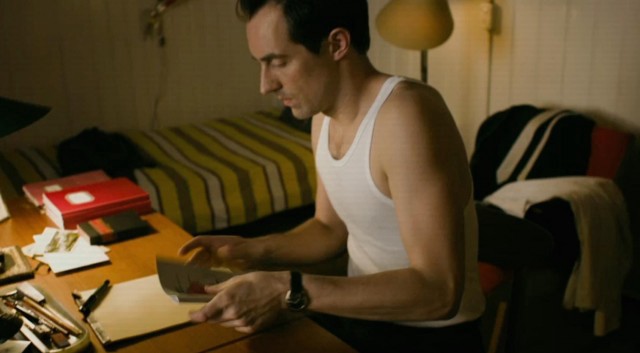How to Get a Freelance Gig: Tips From Someone Who Hires Freelancers, Part III
by Jane Twain

It’s time to wrap things up with this short series — and what a coincidence, our final installment is about wrapping things up at your freelance gig and taking steps to improve your chances of turning one gig into several.
In Part II, we covered ways to succeed at freelancing while you’re on the job. If you put those tips into practice, and if your manager has been paying attention, chances are your gig will conclude with warm fuzzies on both sides. Still, if you want more work, you need to put in a little more effort.
Leave no loose end un-tied. Make sure you have submitted every last document, image, audio file, video clip, etc. that you are required to submit, and also make sure you’ve filed all your invoices and timesheets. If there’s any doubt, ask your manager what you should do with source files, physical documents, shared documents and so on. Leaving your files in good shape — neatly organized, clearly named, easy for someone else to navigate months after you’re left — is a total baller move.
Let your manager and colleagues know you appreciate them, and that you’re available. Anyone who’s had a staff job is familiar with the “It’s my last day! So long and thanks for all the widgets” email that people send when leaving the company. It’s perfectly appropriate for a freelancer to send a similar email to his or her manager and immediate colleagues when the time comes — don’t put the entire department on blast, but feel free to list close collaborators in the “To field.” Include your thanks, your contact information and a note that you hope to work with everyone again soon (if that is the case).
You can also reach out to your manager privately with an even more direct message: “Please keep me in mind for future projects. I’d love to work with you again.” If you have other gigs or projects lined up, consider a brief recap of your availability and the best ways/times to reach you.
Don’t take it personally if there’s no immediate offer of more work. If you say your thanks-and-goodbyes and get only a “Great! We’ll definitely be in touch” response, don’t worry, and definitely don’t send an anxious follow-up (“So… does that mean you’ll hire me again?”). More often than not, there’s simply no more work that needs doing right away — or there IS work that needs doing and there’s no budget to pay someone to do it. Both of these scenarios can change, so…
Stay in touch. No stalking, please, but nobody minds an occasional “Hi Jane, Hope all’s well. I’ve just finished [cool project X] for [other company], which was an excellent opportunity to hone my [X skill]. I’m planning my workload for the next few months and would be thrilled to work with you again, if you have anything on deck. If not, please don’t hesitate to reach out in the future. Thanks!”
Complain with caution. Absolutely, freelancers should speak up and help each other avoid exploitative bosses, places that don’t pay, semi-abusive work arrangements and other pitfalls of freelancing for a living. But there’s a big difference between those situations and normal gigs that have some cons alongside the pros, so think twice before telling all your friends about that idiotic thing your manager said that one time, or how the company you freelanced for is going downhill. I mean, maybe your manager WAS a little annoying, and maybe the company is going through a rough patch, but that’s … life?
I don’t mean to imply that you can’t bitch about freelance gigs over a beer, just that you should be prudent about this sort of thing if your ultimate goal is to get more work from the place you’re bad-mouthing. The reality is, whatever your industry, it’s probably a small world. People know each other. People share intelligence. I once chose not to hire a freelancer whose resume indicated he’d done a project for a well-regarded colleague of mine, and here’s why. I asked my colleague about him, and she said he was fine at his job, but after he left he’d complained to several people that he’d hated the gig, it was boring, and he thought my colleague (his manager) was an idiot. This got back to her within days. Unfair of me to reject the guy? Perhaps, but I don’t need that kind of drama from a freelancer.
And from the Department of Obvious, if you learned any company secrets or juicy gossip during your gig, for heavens sake, keep it to yourself.
Freelance supply and demand is typically understood as a lopsided equation: there are a gazillion more freelancers (supply) than there are people who hire freelancers (demand). By the numbers alone, this is true. But a top-notch freelancer — someone who’s reliable, skilled, savvy about getting the gig and getting paid, communicative and easy to work with — is rare. If you’ve proven yourself to be one of these rare freelancers, please don’t get discouraged, and don’t give up freelancing for a “safe” job you really don’t want. Why? Because nobody should feel stuck in a job they really don’t want, and because people like me need you. If not now, then soon. We’ll definitely be in touch.
Jane Twain works at a large company that does a variety of multimedia stuff.
Support The Billfold
The Billfold continues to exist thanks to support from our readers. Help us continue to do our work by making a monthly pledge on Patreon or a one-time-only contribution through PayPal.
Comments